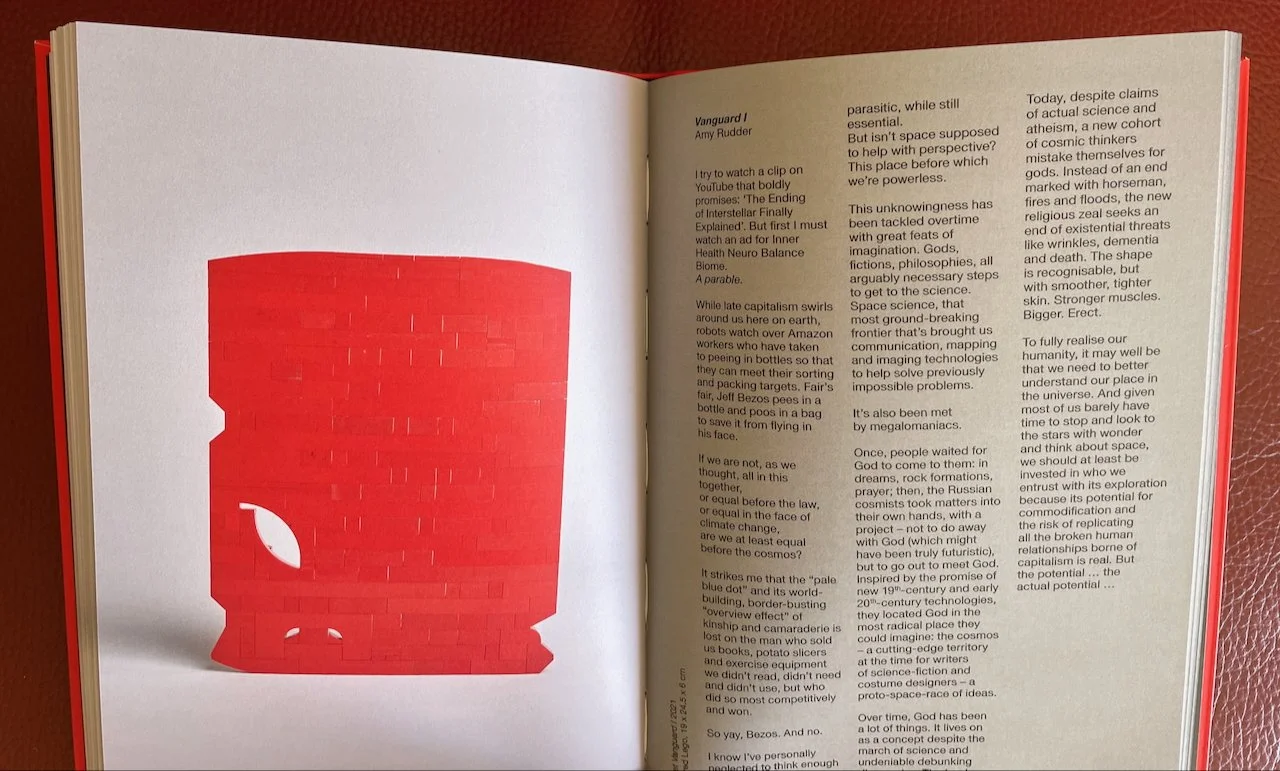Vanguard 1
I try to watch a clip on YouTube that boldly promises: “The Ending of Interstellar Finally Explained”. But first I must watch an ad for Inner Health Neuro Balance Biome.
A parable
*
While late capitalism swirls around us here on earth, robots watch over Amazon workers who have taken to peeing in bottles so that they can meet their sorting and packing targets. Fair’s fair, Jeff Bezos pees in a bottle and poos in a bag to save **it from flying in his face.
If we are not, as we thought, all in this together,
Or equal before the law,
Or equal in the face of climate change,
Are we at least equal before the cosmos?
It strikes me that the ‘pale blue dot’ and its world-building, border-busting ‘overview effect’ of kinship and camaraderie is lost on the man who sold us books, potato slicers and exercise equipment we didn’t read, didn’t need, and didn’t use, but who did so most competitively, and won.
So yay Bezos. And no.
I know I’ve personally neglected to think enough about space. And I understand that many relationships are parasitic, while still essential. But isn’t space supposed to help with perspective? This place before which we’re powerless?
This unknowingness has been tackled overtime with great feats of imagination. Gods, fictions, philosophies, all arguably necessary steps to get to the science. Space science, that most groundbreaking frontier that’s brought us communication, mapping and imaging technologies to help solve previously impossible problems.
It’s also been met by megalomaniacs.
Once, people waited for god to come to them: in dreams, rock formations, prayer; then, the Russian cosmists took matters into their own hands, with a project – not to do away with god (which might have been truly futuristic), but to go out to meet god. Inspired by the promise of new 19th century and early 20th century technologies, they located god in the most radical place they could imagine: the cosmos – a cutting-edge territory at the time for writers of science-fiction and costume designers – a proto-space-race of ideas.
Over time, god has been a lot of things. It lives on as a concept despite the march of science and undeniable debunking discoveries. The ‘god complex’ thrives too.
Today, despite claims of actual science and atheism, a new cohort of cosmic thinkers mistake themselves for gods. Instead of an end marked with horseman, fires and floods, the new religious zeal seeks an end of existential threats like wrinkles, dementia and death. The shape is recognisable, but with smoother, tighter skin. Stronger muscles. Bigger. Erect.
To fully realise our humanity, it may well be that we need to better understand our place in the universe. And given most of us barely have time to stop and look to the stars with wonder and think about space, we should at least be invested in who we entrust with its exploration, because its potential for commodification and the risk of replicating all the broken human relationships borne of capitalism is real. But the potential… the actual potential…
From Jan van Schaik’s ‘Lost Tablet’ series.
